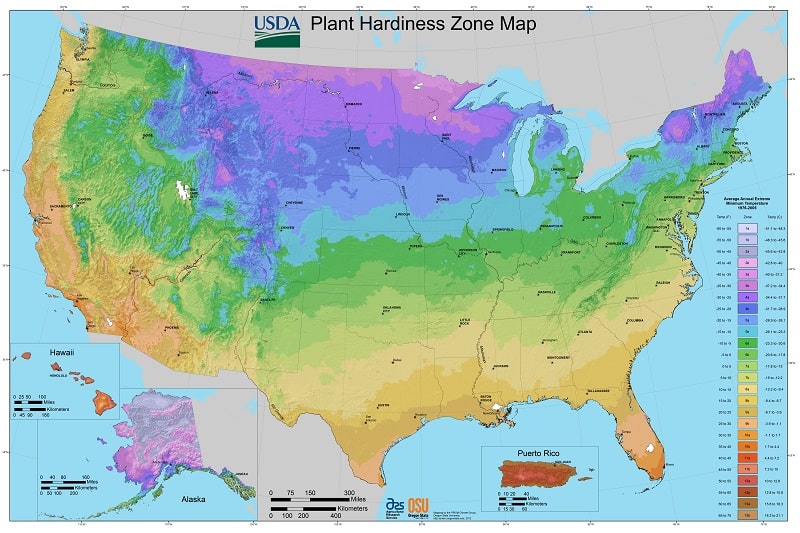How to Keep a Pond From Freezing Without Electricity
Pond Academy is reader-supported. Buying through links on our site may earn us an affiliate commission. As an Amazon Associate I earn from qualifying purchases.
The idea of maintaining a hole in your pond's icy surface at no cost is an alluring one.
I mean, who doesn't like to save money if they can?
But that doesn't mean it's recommended, or even possible, for every pond.
So, let's look at how to keep a pond from freezing without electricity, important things to consider before even trying, and I even have a few extra tips and tricks if you decide to go for it!
Things To Consider
So you'd like to stop your pond from completely freezing over…
But, without electricity?
Yes, it can be done (potentially), but there are a few things you should consider before even attempting this. Especially if you have fish and their survival depends on it.
Do You Need To Keep Your Pond From Freezing Over?
The first question you should ask yourself is if you really need to keep your pond from freezing over in the first place.
The truth is, if you don't have any pond fish, then it's not necessary to keep a hole in the ice. If you have a few fish and they are small, like goldfish, you could always take them indoors during the freezing months.
Also, depending on your location, if your pond only has the potential of freezing over a few short times during winter, for maybe a day or two at a time, you still might not need to worry about it.
Fish can survive a few days in a frozen-over pond (especially if you have properly winterized, as we discuss below) before getting too cranky. And you could just pour some warm water on the icy surface to create a hole if/when needed.
Just keep in mind that unless you have pond life that depends on it for survival, there is no reason to keep your pond from freezing over. And if you do have pond life, be sure to check out our guide on how to keep pond fish alive in winter for some important information.
Can You Realistically Keep Your Pond From Freezing Without Electricity?
Ok, so if you absolutely must keep your pond from freezing over for your pond life to survive, then the next consideration is if it's even possible, in your region, to keep your pond from freezing without electricity.
Typically, a pond owner in Little Rock, Arkansas, will have a much easier time keeping their pond from freezing over than someone who lives in Des Moines, Iowa.
That isn't to say that Little Rock isn't prone to having a few bouts of really cold nights or that Des Moines never sees warmer temps during the winter months. No, it just means that, on average, the minimum temps in Des Moines' zone are a lot lower than Little Rock's zone.
Check out this United States zone map (you can easily google to find a zone map in your area if you're not located in the US). While this chart is primarily used for plant growth (I've used it myself when deciding on which pond plants to incorporate in a pond), it can help indicate whether your pond will experience a prolonged freeze. For example, Des Moines, Iowa, is considered a 5a with average annual minimum temps of -15 to -20, while Little Rock, on the other hand, is an 8a zone, with average annual minimum temps of 10 to 15.

Of course, the higher the zone, the easier it will be to prevent your pond from freezing over. Zones 10 and above are unlikely to experience any freezing, while zones under 9 are more likely, with the likeliness rising the lower you go.
If you've had your pond over the course of a winter, then you probably already know whether it freezes over and whether the ice gets thick for long periods or not.
So, combine that knowledge, if possible, with your zone, which will preferably be a 6 or higher, and you'll be able to guestimate whether it's realistic to keep your pond from freezing over without electricity. Now, before I get a bunch of emails from people in zone 5 or lower saying they successfully stopped their pond from freezing over, the above is just a guestimate.
![]() IMPORTANT
IMPORTANT
Always keep an eye on your pond if attempting to keep the water from freezing without electricity, no matter what zone you are in, especially if the survival of your fish depends on it.
If you decide you're going to have to use a little electricity to keep your pond from freezing over, check out our pond heater reviews to find the best heater for your pond. There are even a few low-wattage models if you're concerned about cost. Here's one we particularly recommend:
If you answered a resounding "YES" to both above questions, let's move on to the goodies (even if you didn't, still feel free to read on)!
Get Our Best Pond Tips Sent to Your Inbox for Free!
Join thousands of others and learn from our decades of pond building and maintenance experience! Your pond will thank you!
By subscribing you agree to receive emails from PondAcademy.com. We will always respect your privacy and you can unsubscribe at any time.
How To Keep Your Pond From Freezing (Without Electricity)
There are four main ways to help keep your pond fish safe during winter that don't involve electricity. Well, technically, the solar options involve electricity, but they don't require an electrical outlet nearby, so they may be a viable option for you. I wouldn't say any of them are 100% foolproof, but all can be effective in the right conditions. If possible, and for best results, you may even want to combine a few of the below strategies where possible.
Pond Depth
I want to start with your pond's depth. While a deep pond won't stop the surface from freezing over, it is important to have a pond deep enough to not completely freeze.
Koi and goldfish can both survive in very cold waters, but not if the water completely freezes around them.
Plus, the more liquid water there is, the more oxygen the pond can potentially hold, which is good if your pond does accidentally freeze over for a day or two.
So, what's a good pond depth to avoid freezing?
You'll hear many different ideas on how deep a pond should be, but I recommend an absolute minimum of 18 inches if you have a koi pond or stock other fish. And really, I'd prefer 24 inches or deeper to be safe.
Solar Pond Aerators
The good news is, using a pond aerator to keep a hole in your pond's surface is super effective and the preferred way if you live in a zone with occasional below-freezing temps.
And I say the preferred way because they are enough to keep a hole open at about 1/10th of the running cost of an electric pond heater.
But since we want to keep the pond from freezing without an electrical outlet nearby …. It gets a bit trickier.
Solar pond aerators are great at running during the day, but unless you have a battery backup, the absence of the sun means they won't run at night. And this is when your pond is most likely to freeze over. And my experience with solar pond aerators is that with even the best models, the battery backup won't run it the entire night.
The SunnyDaze Solar Pond Aerator/Fountain comes with a battery backup and is rated at 132 GPH. A fully stored battery will run the pump for 4 hours. So, in the best conditions, it won't get you through the night. However, this may be enough depending on your zone and how cold the temperature typically gets overnight.
If you have the time and resources, you can create your own solar pond aeration system. And with the right solar setup and enough battery storage, you could build one that will work 24 hours a day.
In this video, you can see how Jeff from Missouri Wind & Solar created his solar pond aeration system with a powerful battery system that runs 24 hours a day.
His setup uses:
- (4) 6-volt batteries
- 300-watt inverter
- 10 amp charge controller
- Aerator pump
- 48-volt donut fan
He has neatly installed these components inside a box that can double as a bench to sit and view your pond.
If you go the solar aerator route, place the aerator (or the air stones) near the shallow edge of your pond. This will make it easier to maintain an open hole allowing for gas exchange, and it won't disturb the warmer water in the deeper part of the pond where your fish enter torpor (a state of decreased activity).
Solar Water Heaters
While I am on the topic of solar, another interesting option to heat your pond that I've seen floating around the internet is a solar water heater.
While they are typically used to heat swimming pools, they could potentially be used to raise the temp of your pond on those colder days.
This setup would simply circulate your pond water through the solar panels, use the sun's energy to heat the water, and then return it to your pond.
While this sounds enticing, there are a few gotchas with this setup.
First, the solar panels will have to be in a high sun area throughout most of the day. And it likely won't work well, or at all, if the temperature of your region gets really cold. Nor would it heat your pond at night.
Plus, while you'll be saving on heating costs, you'll still have to pump water to the solar heater and back to the pond (which you could technically do with a solar pump, I suppose).
I wouldn't recommend this setup as-is, but if you're a very creative individual you might be able to modify it to work for you.
Floating Devices
A popular option that is often used to not only keep ponds from completely freezing over, but to also keep farm animal water tanks ice-free, is to add floating saltwater bottles, ping pong balls, and/or a floating ice preventer.
All three work in a similar manner. When natural wind or bubbles from a solar pond aerator hit them, they constantly move around the hole in the ice, stopping the hole from completely freezing over. Just as a river rarely freezes, the moving water caused by the floating objects will help prevent your pond from completely freezing over.
Additional Tips & Tricks
- Combine multiple strategies – It deserves repeating, if you are serious about making sure your pond doesn't freeze over completely, I'd recommend combining a few of the above strategies. For example, you could set up a solar pond aerator with battery backup and throw a few floating ping pong balls or salt water bottles in the pond's hole. The movement from the aerators bubbles will keep the balls or bottles in a constant movement which will, in turn, stop the ice from forming.
- Winterize your pond - By cleaning your pond and removing any debris, you will lessen the number of harmful gasses from building up in case it does freeze over. Also, stop feeding your fish at 50 degrees as to not promote more decay from leftover fish food (don't forget to turn off your automatic pond fish feeder if you're running one). Check out our guide on how to winterize a pond for more information.
- If your pond does freeze completely over - In case of a total freeze over you'll want to make sure you use warm, not boiling, water to create the air hole in the pond's surface. Also, do not break a hole in the ice by force, for example, with a hammer. The loud banging sound can stress out your fish. Your fish will be fine if your pond has totally frozen over for a day or two. But, the longer it's frozen over, the more at risk they become of oxygen deprivation and are exposed to dangerous gases underneath the ice.
Find more tips and tricks in our full guide on how to heat a pond in winter with and without electricity.







